

MBBS (AIIMS), MS (Surgery, AIIMS), MNAMS, FACS (USA), FICS (USA), FUICC
Fri, 15 Dec 2023
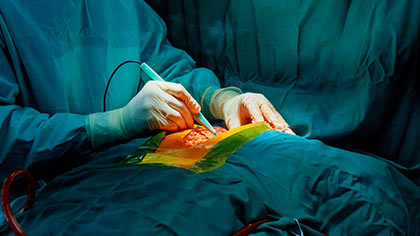
A number of factors are looked at that help decide the most tailor made approach to your treatment. These include
Doctors use a wide range of diagnostic procedures and tests to diagnose lung cancer. These include the following:
Surgery, radiotherapy and chemotherapy are all used to treat lung cancer. They can each be used alone or together.
The treatment for non small cell lung cancer is different from the treatment for small cell lung cancer.
Small Cell Lung Cancer
Small cell lung cancer is mostly treated with chemotherapy. Surgery is only suitable if there is no sign that the cancer has spread to the lymph glands in the centre of the chest (the mediastinal lymph glands) and this is rare with small cell lung cancer. It has usually spread at the time of diagnosis. So chemotherapy is usually the main treatment. You may also have radiotherapy to treat this type of lung cancer.
Non Small Cell Lung Cancer
Non small cell lung cancer can be treated with surgery, chemotherapy, radiotherapy or a combination of these, depending on the stage when the cancer is diagnosed. Some people with advanced lung cancer may have biological therapy.
If you have early stage small cell lung cancer you are most likely to have chemotherapy and then radiotherapy to the lung. People who are fairly fit may have chemotherapy and radiotherapy at the same time (chemoradiation). It is quite common for this type of cancer to spread to the brain. So doctors often recommend radiotherapy to the brain for people whose lung cancer shrinks with chemotherapy treatment. It aims to try to kill any cancer cells that may have already spread to the brain but are too small to show up on scans. Doctors call this prophylactic cranial irradiation or PCI.
For very early stage small cell lung cancer that has not spread to the lymph nodes in the centre of the chest (the mediastinal lymph nodes), you may have surgery to remove the part of the lung containing the tumour (a lobectomy). The surgery is followed by chemotherapy and sometimes radiotherapy. But usually the cancer has already spread at the time of diagnosis and surgery is not then possible.
If you have small cell cancer that has spread to lymph nodes or other areas of the body you may have chemotherapy, radiotherapy or treatment to relieve symptoms. If chemotherapy works well to shrink the lung tumour down and you are fairly fit you may also have radiotherapy to the brain to kill any cancer cells that may have already spread there.
Lung Cancer Stage 1 Cure
Stage 1 non small cell lung cancer is uncommon. Surgery to remove part of the lung (a lobectomy) or all of the lung (a pneumonectomy) will be required for treatment for early stage Non Small Cell Lung Cancer. If an operation is not possible for other health reasons, radiotherapy may be suggested instead to try to cure the cancer. Another option for small tumours if surgery is not possible is radio frequency ablation (RFA).
Lung Cancer Stage 2 Cure
For stage 2 non small cell lung cancer, depending on the position of the tumour, the patient may be offered surgery to remove part of the lung (a lobectomy) or all of the lung (a pneumonectomy). If the lung cancer is completely removed, chemotherapy may be required to try to lower the risk of the cancer coming back. This is known as adjuvant chemotherapy. If the the tumour could not be removed radiotherapy may be required afterwards.
Lung Cancer Stage 3 Cure
For stage 3 non small cell lung cancer surgery may still be possible, depending on where the cancer is in the lung. You may then have chemotherapy to try to lower the risk of the cancer coming back. If we find cancer cells in the lymph nodes during the surgery most likely chemotherapy and possibly radiotherapy may be required after the operation.
If you surgery is not possible due to other health concerns, radiotherapy or combined radiotherapy and chemotherapy (chemoradiation) may be offered as primary treatment.
If the scans showed that there are cancer cells in the middle area of the chest (the mediastinum), primary radiotherapy instead of surgery may be offered. The lung cancer may be too close to the heart to operate safely. In that case a course of chemotherapy followed by radiotherapy may be required. Some people who are fairly fit and have small tumours have radiotherapy at the same time as chemotherapy (concomitant chemoradiotherapy).
Chemoradiotherapy causes more side effects than the treatments given alone so you need to be well enough to cope with the side effects.
If scans show signs of cancer in the lymph nodes on the opposite side of chest, surgery is not possible but a course of chemotherapy is the correct option. After the chemotherapy the patient might need further treatment with radiotherapy.
Lung Cancer Stage 4 Cure
Treatment for stage 4 non small cell lung cancer aims to control the cancer for as long as possible and to shrink the tumour down to reduce symptoms.
Many trials have used chemotherapy in this situation and we know that it can help people to live longer as well as relieving symptoms. People whose cancer cells have particular proteins (receptors) may have treatment with biological therapy drugs.
If you have had chemotherapy and it is no longer controlling the cancer, you may have further chemotherapy if you are well enough. You may also have radiotherapy to control symptoms such as pain or a cough. As well as radiotherapy, other treatments can relieve a blockage and reduce symptoms if you have a tumour in one of the main airways (the left or right bronchus). These treatments include internal radiotherapy (brachytherapy),laser treatment, freezing the tumour (cryotherapy), using a rigid tube (a stent) to keep the airway open, and light therapy (photodynamic therapy - PDT). There is detailed information about treatments to relieve an airway blockage in the advanced lung cancer treatment section.
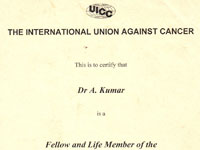
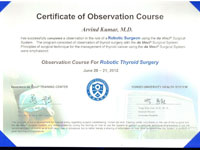
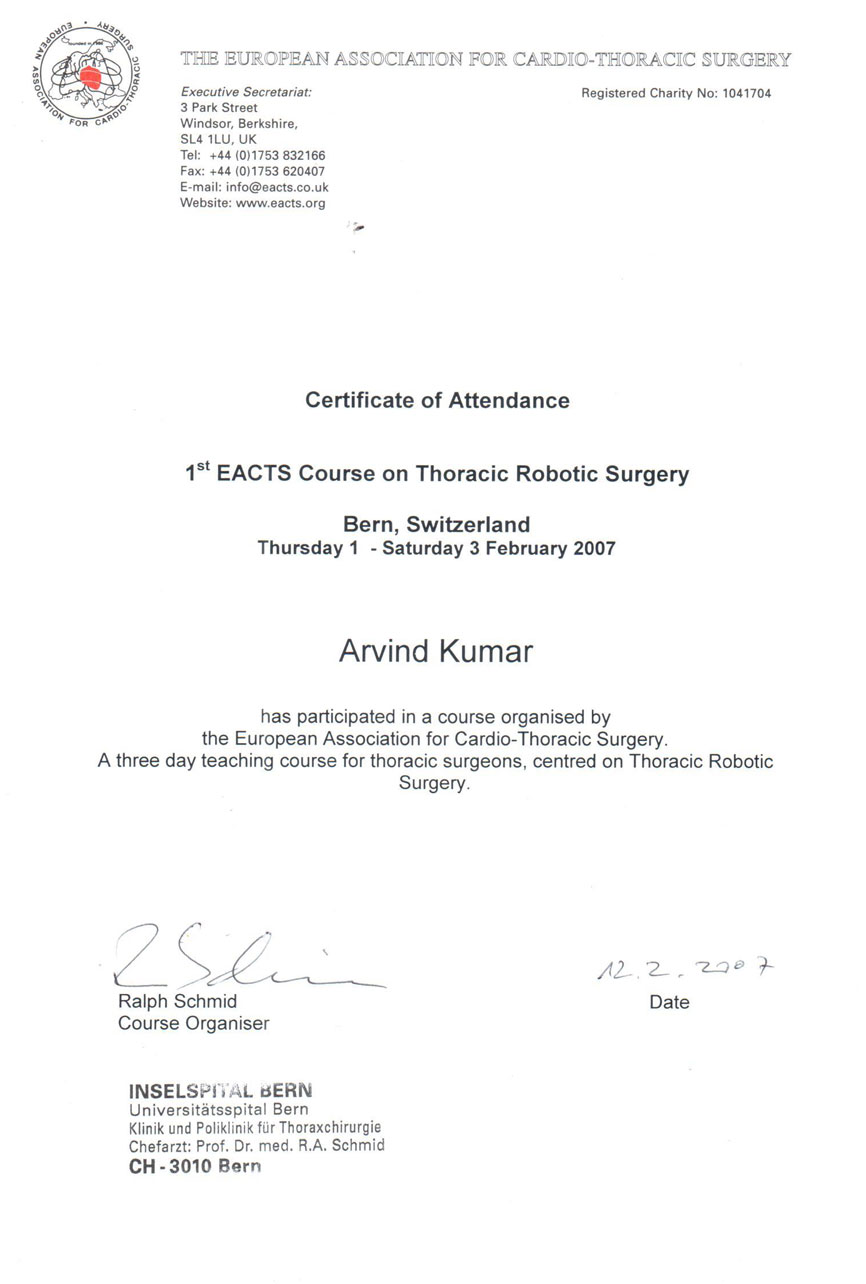
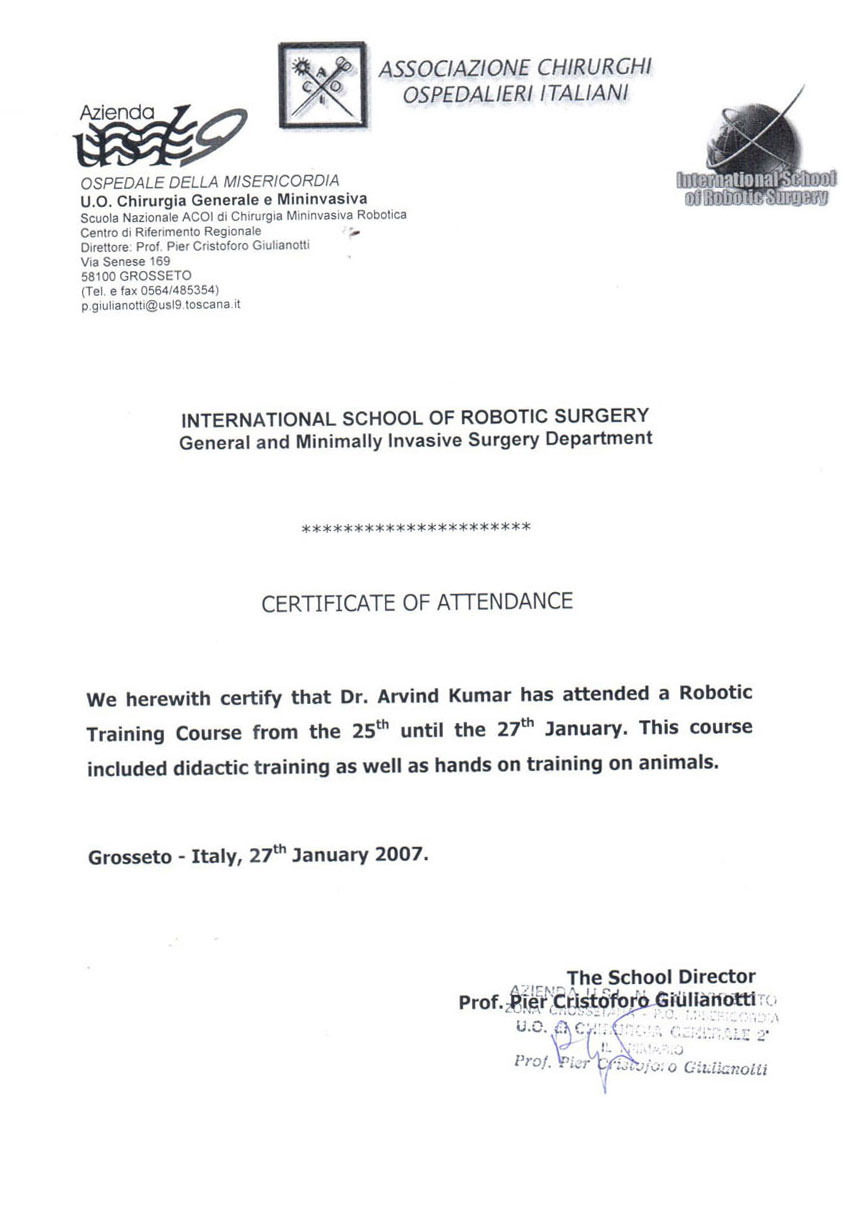
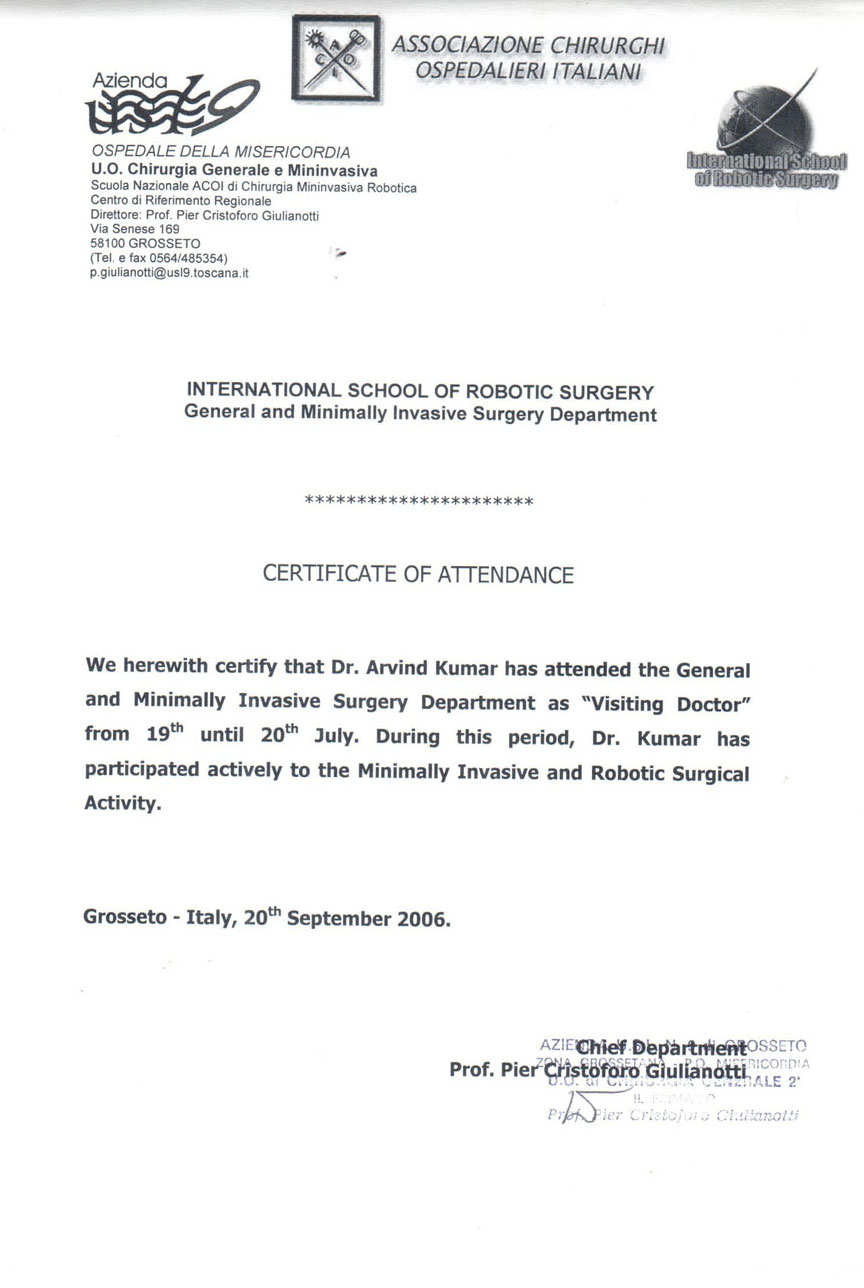
Copyright @ (Prof.) Dr. Arvind Kumar. All Rights Reserved / Thoracic Surgical Oncologis
License Number: U.P State Medical Council (India) No. 27637
